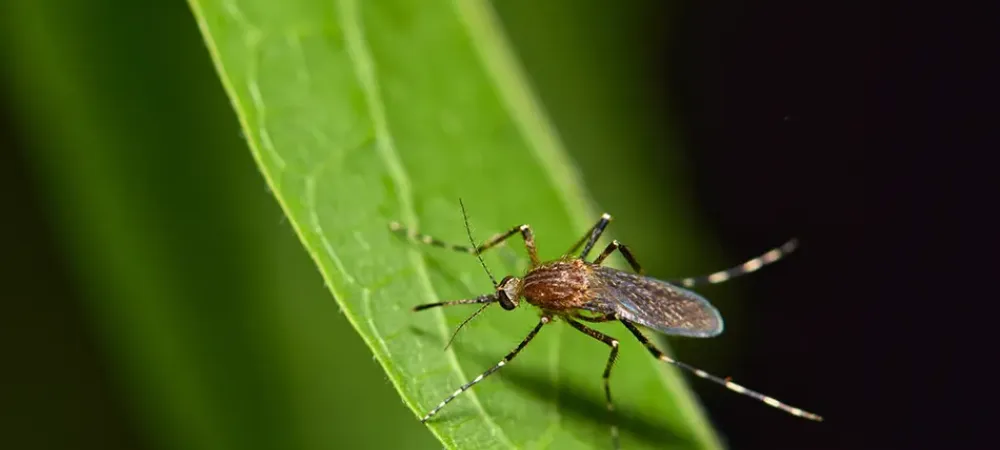
Why Professional Mosquito Control Is Essential for Your Alabama Home
If buzzing mosquitoes have taken over your Alabama yard, simply swatting or spraying store-bought repellents won’t solve the problem long-term. As mosquito control professionals with over 17 years serving Alabama residents, we understand how these pests pose not only an annoying nuisance but an important health risk. Mosquitoes disrupt outdoor enjoyment and carry potentially serious diseases threatening families, pets, and neighbors. This guide explores the common mosquito species in Alabama, explains why DIY methods often fail, and shows how professional mosquito control from Envirogreen offers safe, effective, and lasting protection to reclaim your outdoor living space.
Understanding Alabama’s Most Common Mosquito Species and Health Risks
Alabama’s warm, humid climate creates ideal breeding conditions for a variety of mosquito species, each with unique behaviors and associated health risks.
- Asian Tiger Mosquito (Aedes albopictus): Easily identifiable by its striking black-and-white striped legs and body, this aggressive daytime biter has expanded rapidly throughout Alabama. It is a known vector for serious illnesses, including dengue fever, chikungunya, and Zika virus. This mosquito thrives in small water-holding containers around homes, making residential yards perfect breeding grounds.
- Southern House Mosquito (Culex quinquefasciatus): Predominantly active at night, this species breeds in stagnant water sources like clogged gutters, birdbaths, and old tires. It can transmit West Nile virus and various forms of encephalitis, diseases that affect the nervous system and, in severe cases, can lead to hospitalization or death.
- Eastern Malaria Mosquito (Anopheles quadrimaculatus): Once a prominent vector during historic malaria outbreaks, this mosquito species remains in Alabama, but malaria cases are now rare.
- Eastern Tree Hole Mosquito (Aedes triseriatus): Found mainly in wooded areas, this mosquito breeds in natural containers like tree holes and can transmit La Crosse virus, a painful but less common encephalitis-related disease.
- Yellow Fever Mosquito (Aedes aegypti): Another daytime biter with distinctive white markings, this mosquito spreads yellow fever, dengue, and Zika viruses and prefers shaded, sheltered areas around homes. After a 26-year absence, this species was rediscovered in Alabama’s Mobile County, signaling renewed risks for mosquito-borne diseases in the state (Zohdy et al., Auburn University research, 2018).
Mosquito season in Alabama spans from early spring well into fall, peaking during the hot, humid summer months. This extended season allows mosquito populations to multiply rapidly, increasing the risks for illnesses such as West Nile virus, Eastern Equine Encephalitis, and Zika (Alabama Department of Public Health, 2025).
Why DIY Mosquito Control Often Falls Short
Many Alabama homeowners attempt to manage mosquitoes with DIY solutions such as store-bought insecticides, citronella candles, mosquito coils, and removing standing water. While these efforts offer some short-term relief, their limitations mean they rarely provide the comprehensive protection needed.
- Hidden Breeding Sites: Mosquitoes can reproduce in tiny amounts of water that homeowners often overlook—e.g., flower pot saucers, rain gutters, birdbaths, pet water bowls, and discarded trash.
- Life Cycle Complexity: Many DIY sprays kill only adult mosquitoes visible in the yard but do not affect eggs or larvae in water sources. Without disrupting the full life cycle, mosquito populations quickly rebound.
- Short Effectiveness: Citronella candles and repellents wear off quickly and need frequent reapplication, making them unreliable for continuous outdoor use.
- Potential Risks: Improperly applied chemicals can harm beneficial insects, pets, or family members.
- Time and Expense: Continually chasing mosquitoes with ineffective DIY methods causes wasted time and money.
Scientific surveys in Alabama show many residents report frequent mosquito bites despite DIY efforts, underscoring the need for professional intervention (Morris et al., 2019).
How Professional Mosquito Control Protects Your Alabama Home
Professional mosquito control services like those provided by Envirogreen offer several advantages, ensuring comprehensive, safe, and lasting reduction.
- Thorough Inspection: Trained professionals identify all breeding sites, including hidden or hard-to-reach locations.
- Targeted Treatments: EPA-approved larvicides and adulticides interrupt mosquito development at multiple life stages, from larvae through adults.
- Timed Scheduling: Treatments align with mosquito biology and peak breeding cycles for maximum impact.
- Safety Focus: Products and application methods are safe for families and pets and comply with environmental regulations.
- Ongoing Monitoring: Regular follow-ups ensure sustained mosquito population control throughout the season.
Studies demonstrate that professional vector control reduces mosquito populations more effectively than individual efforts, especially in areas with high mosquito-borne disease risk, such as the Gulf Coast (Foley et al., 2021).
Why Choosing Professional Mosquito Control Makes Sense for Alabama Homeowners
Opting for professional mosquito control offers key benefits:
- Health Protection: Mosquito bites transmit diseases like West Nile virus, Eastern Equine Encephalitis, and Zika.
- Outdoor Enjoyment: A mosquito-free yard allows for pest-free family activities and relaxation.
- Cost Efficiency: Professional treatments reduce expenses related to repeated DIY purchases and wasted effort.
- Environmental Responsibility: Experts apply treatments responsibly, protecting beneficial species and water quality.
- Peace of Mind: Knowing your home is protected by trained professionals alleviates stress and risk.
Alabama’s mosquito challenges, shaped by ecology, climate, and urbanization, require expert approaches that DIY methods cannot match (Alabama Department of Public Health, Zika Presentation, 2025).
Take Control of Your Alabama Yard Today
Don’t let mosquitoes dictate your summer plans or endanger your family’s health. Contact Envirogreen today to schedule your professional mosquito control service. Our safe, effective treatments are customized for Alabama’s unique mosquito challenges, giving you a pest-free, healthy yard all season long.
Sources:
- Alabama Department of Public Health. “Mosquito-borne Diseases.” Alabama Department of Public Health, 29 Sept. 2025, https://www.alabamapublichealth.gov/mosquito/.
- Foley, D. H., et al. “Arboviral Diseases and Poverty in Alabama, 2007–2017.” PLoS Neglected Tropical Diseases, vol. 15, no. 7, 5 July 2021, https://journals.plos.org/plosntds/article?id=10.1371/journal.pntd.0009535.
- Morris, M. J., et al. “Perceptions and Practices of Mosquito-borne Diseases in Alabama.” PMC, 22 July 2019, https://pmc.ncbi.nlm.nih.gov/articles/PMC6652104/.
- Zohdy, Sarah, et al. “School of Forestry and Wildlife Sciences Research Team Discovers Zika-Transmitting Mosquito Species in Alabama.” Auburn University, 3 June 2018, https://ocm.auburn.edu/newsroom/news_articles/2018/06/school-of-forestry-and-wildlife-sciences-research-team-discovers-zika-transmitting-mosquito-species-in-alabama.php.
- Alabama Department of Public Health. “Aedes Mosquitoes - Alabama Department of Public Health (ADPH).” 2025, https://www.alabamapublichealth.gov/mosquito/assets/ADPHZikaGeneralPresentation.pdf.
